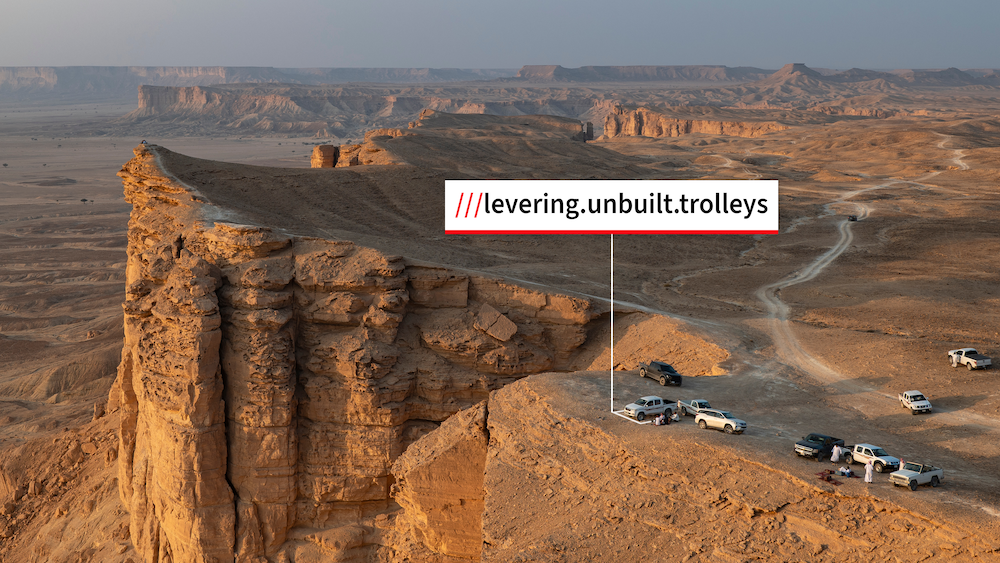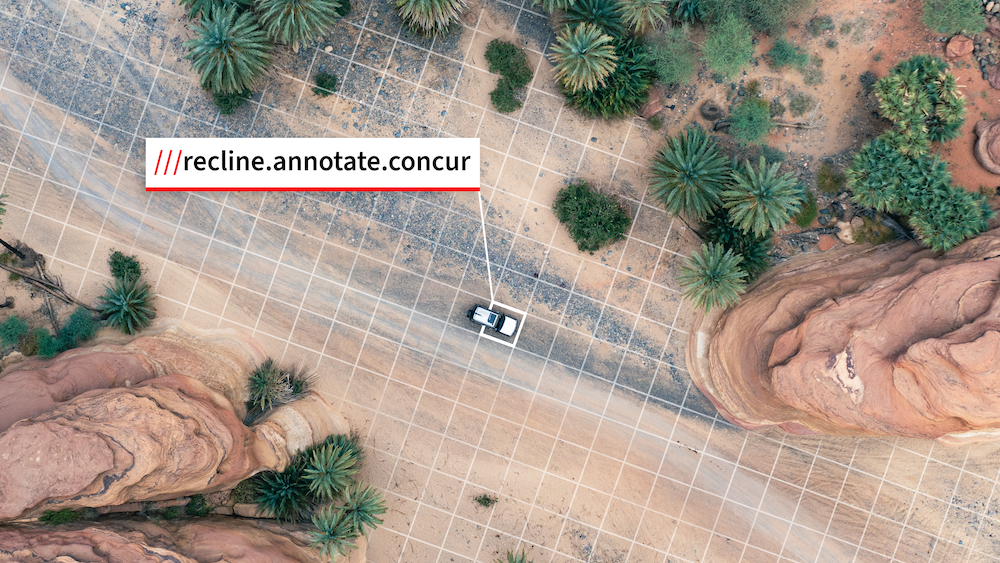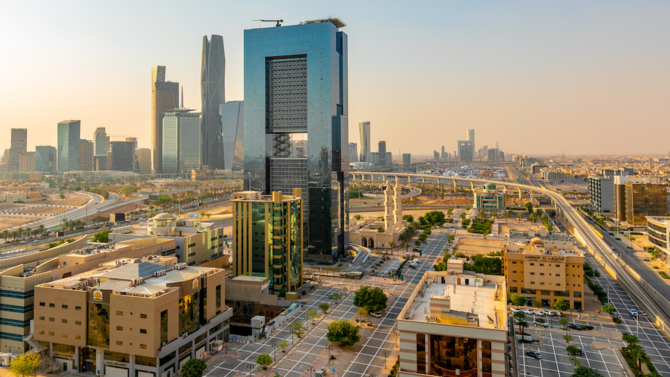LONDON: Saudi Arabia is experiencing increased demand for precision navigation in the logistics sector as it becomes “an ultra-competitive area” where consumer service expectations are very high, according to an expert.
“Precision navigation is becoming a priority, especially for the logistics sector in the region, and if you want to divulge into Saudi Arabia, particularly, as logistics is a very important part of any kind of business at the moment ... what we’re seeing is this trend where precision navigation is becoming a really key theme,” Chris Sheldrick, co-founder and CEO of what3words, told Arab News.
“It’s an ultra-competitive area and service expectations are becoming very high among consumers, people want to reduce calls they’re getting from delivery drivers, and they want to have a really good experience when they order online, and so, I think, especially now in Saudi Arabia, we’re just seeing a huge trend toward how can I become far more precise about that location,” he said.

What3words has been implemented in several sectors in Saudi Arabia, including emergency services, logistics, ride-sharing apps, delivery services, and giga projects. Supplied
What3words, a global address system designed to identify any location with a resolution of about 3 meters, began operating in the Kingdom in 2018.
It has since been implemented in several sectors, including by the Red Crescent for emergency services, along with logistics companies, ride-sharing apps and delivery services, in addition to being used by real estate developer ROSHN, who are rapidly developing and using it for their newly built properties in their communities and filtering out into private companies as well.
“We’re very proud to be part of that change which is happening in Saudi, around precision for navigation for all of these key industries of the on-demand economy and really hoping to thrive over the next few months toward the end of the year and with regards to the rest of the Middle East with the same (approach),” he said.
The UK-based company which was set up in 2013, has recently signed agreements in the last year to partner with more Gulf-based companies, while also enhancing existing cooperation deals and being more used by consumers, who are “getting what3words more ingrained in their daily lives,” Sheldrick added.
As part of the new partnerships, Saudi supermarket chain Tamimi Markets has adopted what3words for precise home delivery of groceries.
UAE-based ZAJEL Courier Services now also accepts what3words in the Emirates and Saudi Arabia to help improve delivery efficiency and enable retailers to offer more precise deliveries to their customers, making it the 23rd logistics company in the region to adopt what3words.
Last week, Kaafmeem, a Saudi fashion retailer specializing in women’s clothing, also partnered with what3words and the option has been added to the checkout page, so that customers can make sure they receive their goods to the correct 3 sq. meter entrance of their house, Sheldrick said.
“It’s a relatively small world around e-commerce, and we’re finding that the logistics companies themselves are recommending to retailers to add what3words on to the checkout page because they know that for themselves as delivery companies, it saves them time and money when they get that 3-meter precision, so I think we’re pretty cemented into the mobility, e-commerce and ecosystems there,” he added.

Chris Sheldrick, co-founder and CEO of what3words, said Saudi Arabia is seeing a trend where precision navigation is becoming a really key theme. Supplied
Sheldrick said the Gulf and Middle East have historically struggled with accurate addresses, but “it feels like now the whole region is uniting around this movement,” from the on-demand economy, ride-hailing, e-commerce, to grocery delivery, and being able to get to the entrances of people’s homes “first time every time,” and he feels that this is being supported by governments, industry and by consumers themselves.
“With some of our existing customers, let’s say (Emirati multinational logistics, courier and package delivery company) Aramex, who are the first delivery company in the Gulf to adopt what3words, there’s always more and more touch points as these companies grow the ways they need to integrate and what3words grows as well.
“At the moment, we are really focused on replicating the household name status that what3words now enjoys in the UK, into the Gulf region and especially in Saudi Arabia.”

What3words is looking to incorporate technologies so the pinpoint addresses are valid on the ground and become part of the aerial life and aspect as well. Supplied
With the Kingdom looking to lead the way in building smart and futuristic cities, developing electric vehicles, self-driving vehicles and drone deliveries, Sheldrick said that what3words is looking to incorporate those technologies so the pinpoint addresses are not only valid on the ground but become part of the aerial life and aspect as well.
“With a lot of the technologies which are coming into the region, there’s now approval for vertical takeoff and landing, let’s say taxis, there’s drone delivery, autonomous cars — now, in each of these cases, the precise location where you’re going to is incredibly important and (it is) incredibly important to be precise and not vague on those locations.
“So, we think that those are ideal places for us to partner, as these new industries effectively are built, what3words wants to be there right at the beginning as the regulations are being signed off that these can now be happening in everyday life as addresses must be more precise, this is a great opportunity for us to be getting established alongside these new technologies taking hold in KSA and the wider region.”




























